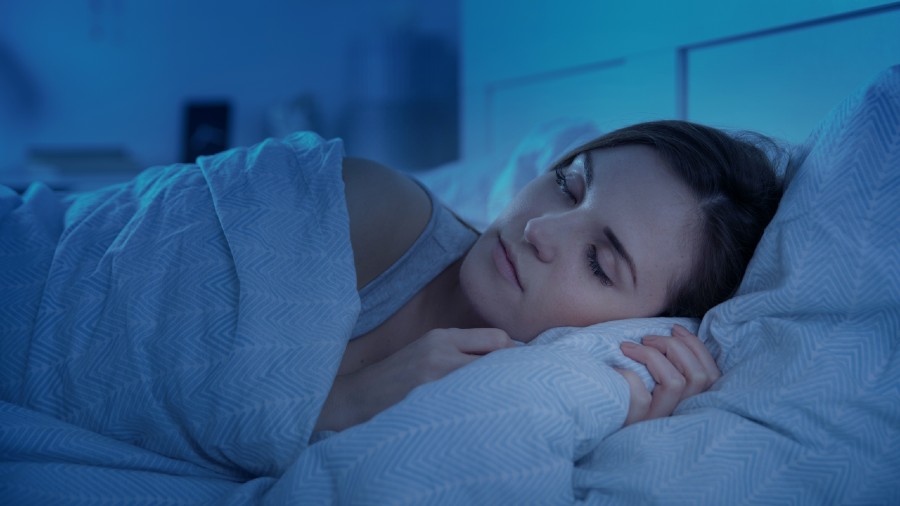This has not been a good year for sleep. With the coronavirus pandemic and school and work disruptions contributing to countless sleepless nights, sleep experts have encouraged people to adopt a variety of measures to overcome their stress-related insomnia. Among their recommendations: engage in regular exercise, establish a bedtime routine and cut back on screen time.
But many people may be overlooking another important factor in poor sleep: diet. A growing body of research suggests that the foods you eat can affect how you sleep, and your sleep patterns can affect your dietary choices.
Researchers have found that eating a diet high in sugar, saturated fat and processed carbohydrates can disrupt your sleep, while eating more foods rich in fibre and unsaturated fat — such as nuts, olive oil, fish and avocados — seems to have the opposite effect, helping to promote sound sleep.
To get a better understanding of the relationship between diet and sleep, some researchers have turned to randomised controlled trials in which they tell participants what to eat and then look for sleep changes.
Some of these trials have also been funded by the food industry, which can bias results. One study funded by Zespri International, the world’s largest marketer of kiwi fruit, for example, found that people assigned to eat two kiwis an hour before their bedtime for four weeks had improvements in their sleep onset, duration and efficiency. But importantly, the study lacked a control group, so it is possible that any benefits could have resulted from the placebo effect.
Other studies funded by the cherry industry have found that drinking tart cherry juice can modestly improve sleep in people with insomnia, supposedly by promoting tryptophan, one of the building blocks of the sleep-regulating hormone melatonin.
Tryptophan is an amino acid found in many foods, including dairy and turkey, which is one of the reasons why we are so sleepy after our Thanksgiving feasts. But tryptophan has to cross the blood-brain barrier to have any soporific effects and in the presence of other amino acids it ends up competing, unsuccessfully, for absorption.
One way to enhance tryptophan’s uptake is to pair foods that contain it with carbohydrates. That stimulates the release of insulin, which causes competing amino acids to be absorbed by muscles, making it easier for tryptophan to cross into the brain, said Marie-Pierre St-Onge, an associate professor of nutritional medicine at Columbia University Irving Medical Center and the director of the Sleep Center of Excellence at Columbia, US.
St-Onge has spent years studying the relationship between diet and sleep. Her work suggests that rather than emphasising one or two specific foods with supposedly sleep-inducing properties, it is better to focus on the overall quality of your diet. In one randomised clinical trial, she and her colleagues recruited 26 healthy adults and controlled what they ate for four days, providing them regular meals prepared by nutritionists while also monitoring how they slept at night. On the fifth day, the subjects were allowed to eat whatever they wanted.
The researchers discovered that eating more saturated fat and less fibre led to reductions in slow-wave sleep, which is the deep, restorative kind. In general, clinical trials have also found that carbohydrates have a significant impact on sleep. People tend to fall asleep much faster when they consume a high-carbohydrate diet compared to when they consume a high-fat or high-protein diet. That may have something to do with carbs helping tryptophan cross into the brain more easily.
But the quality of carbs matters. St-Onge has found that when people eat more sugar and simple carbs — such as white bread, bagels, pastries and pasta — they wake up more frequently throughout the night. In other words, eating carbs may help you fall asleep faster, but it is best to consume “complex” carbs that contain fibre, which may help you obtain more deep, restorative sleep.
One example of a dietary pattern that may be optimal for better sleep is the Mediterranean diet, which emphasises foods such as vegetables, fruits, nuts, seeds, legumes, whole grains, seafood, poultry, yogurt, herbs and spices, and olive oil. Large observational studies have found that people who follow this dietary pattern are less likely to suffer from insomnia.
But the relationship between poor diet and bad sleep is a two-way street: scientists have found that as people lose sleep, they experience physiological changes that can nudge them to seek out junk food. In clinical trials, healthy adults who are allowed to sleep only four or five hours a night end up consuming more calories and snacking more frequently. They experience more hunger and their preference for sweet foods increases.
Another study, led by researchers at King’s College London, demonstrated that proper sleep can increase your willpower to avoid unhealthy foods. It found that habitually short sleepers who went through a programme to help them sleep longer had improvements in their diet.
The takeaway is that diet and sleep are entwined. Improving one can help you improve the other and vice versa, creating a positive cycle where they perpetuate one another.
NYTNS











